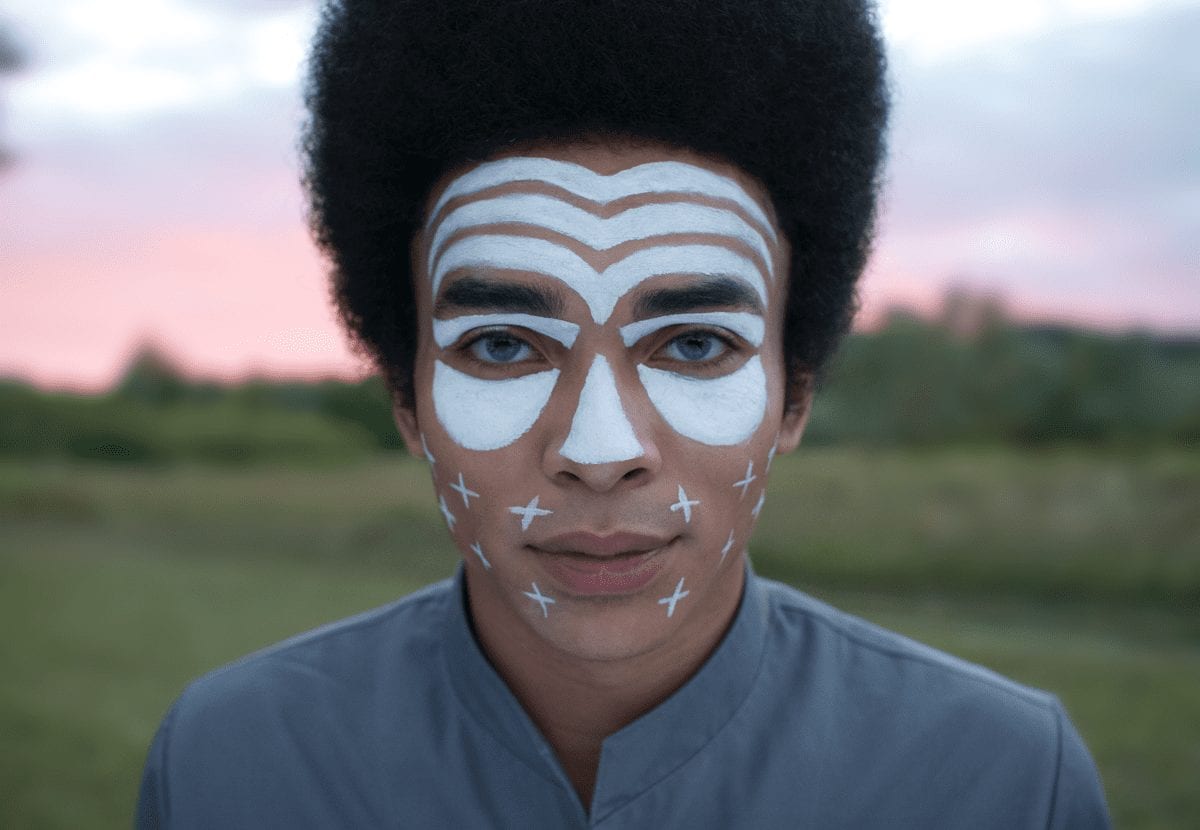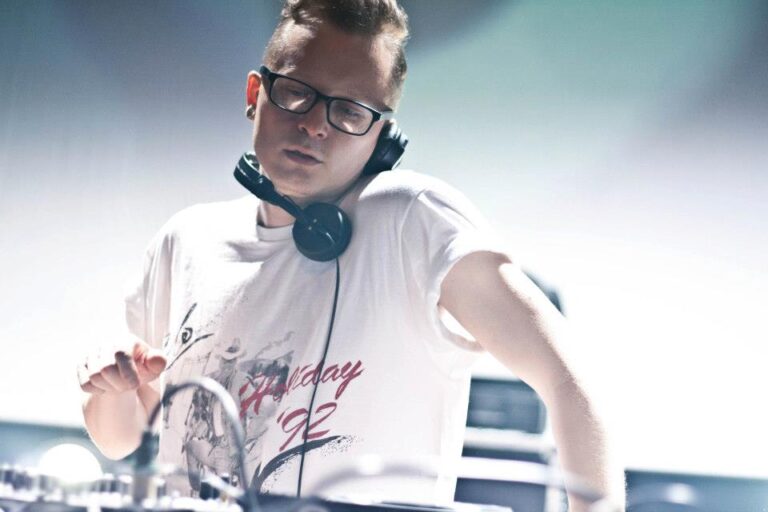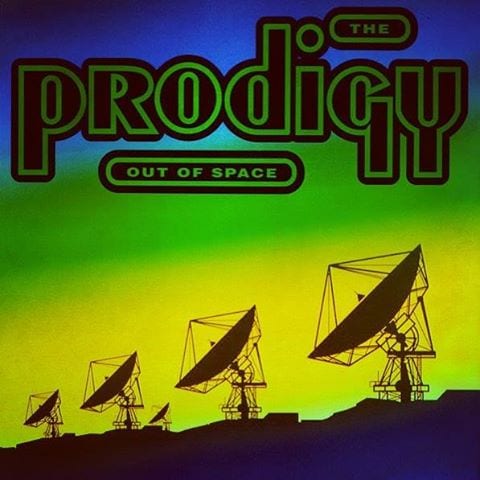Few artists have had the same impact with a debut as Kimyan Law. Emerging in 2014 with a full album, he stopped every card-carrying drum & bass fan in their tracks.
No big fanfare or big promo hype, just a few tracks teased on Blu Mar Ten’s podcast, a single then boom: Coeur Calme landed and triggered unanimous love causing scene pioneers such as Doc Scott to call it “stunning”, London Elektricity to call it “amazing” and Etherwood to say it’s “musically staggering”.
At the time very little was known about the Congo-originated/Vienna-raised artist. The most pertinent fact about him seemed to be that he made his debut on $10 earbuds and that nothing and no one sounded anything like him. Still nothing does to this day… As proved by his second album, Zawadi. Set for release this Friday, here’s a 10 minute tease…
Just as rich, exciting, musically complex and evocative as his debut – if not more – it’s clear that, at just 21, Kimyan Law’s story is only beginning to unfold. We caught a rare moment of phone time with him (most of his interviews seem to be conducted solely on email) to bring everyone up to speed.
You seem to be gradually revealing more of yourself. Until the blurb with Zawadi landed I had no idea you were a Congolese exile, for example.
The music has to be the most important thing and I think I would still be happiest being anonymous behind it all but I appreciate there also needs to be a personal connection for people to relate to. So yeah the label and I decided to explain more about myself. My roots are interesting. My mother is Austrian and I haven’t been back to Congo for years as it’s very hard to travel there because of the civil war. Being the only mixed-race child growing up in my school in Austria had a lot of impact on me personally, though. I wasn’t white, I wasn’t black – and there were definitely moments of exclusion from peers and teachers. I felt a solitude. No one could see things from my perspective, coming from two cultures, so music played a vital role for me – both as a refuge and as a means to connect with people.
Was that reflected in your household’s soundtrack growing up?
To a degree, sure. My dad would play a lot of contemporary Congolese music. Very big band-led and optimistic sounding. But that was only a fraction of what I grew up to – we also have a lot of 90s R&B and classic reggae in our house. But yes, it was a mixed soundtrack that all had an influence either directly or subliminally.
So back track to 2014 and your debut Coeur Calme. You came from nowhere and boom – suddenly there’s a whole album.
I didn’t realise it was an album until was two thirds of the way into it. I was just making music and showing it to no one or only very close friends who suggested I sent it to some labels and not just sit on it but I didn’t know who might be interested in listening to it. I knew it was different to most things but I thought Chris Blu Mar Ten might be open to it. We got talking online and eventually he came over to Vienna to play at Volkontakt so we met up. He explained to me I had the best part of an album and that it was rare for a new drum & bass artist to be in this position.
So you’d been developing this sound for years before you got in touch with anyone in D&B?
Yeah but not in a forced way – I was just having fun putting some of my favourite elements of music together in my own way. Sound clusters if you like. But Chris presented me to the world in album form and I’m very appreciative of that because I was just making music and putting together ideas. That’s how it evolved.
Let’s sort out this whole ‘produced on earbuds’ myth once and for all, did you really make your first album on $10 earbuds and have you upgraded since?
This is true. I was at the Blu Mar Ten studio in London last year, after we’d released Coeur Calme, and Chris BMT asked me about my set up and what type of monitors I had. I was like ‘I don’t have monitors’. He thought I borrowed a friend’s but I showed him my earbuds that I make all my music on and he freaked out. He took a photo of them and tweeted it straight away. But to be honest, those earbuds reach the spectrum I want to reach so why not? I have to admit I have upgraded my set-up a little…. I use $20 earbuds now!
Ha! So… Zawadi – Swahili for gift, right? A gift to us? A gift that you have?
Yes, it’s more loosely translated to gift but more specifically a gift from above – which is how my mother describes me and my sister. Making music that connects to people emotionally is a gift. To take so much joy from making something is a gift but to have people writing messages about how the music has helped them conquer situations is incredible. I could never imagine that or anticipate it. I’ve had a whole range of situations explained to me – humans who I’ve never met from countries I’ve never been to, explaining how I’ve spoken to them through my music and changed their lives and either helped them through things or prevented them from doing things? That is a gift like no other. It is truly special.
Can you pinpoint any tracks on Zawadi that may be a result of this dialogue? Perhaps the first time you sat down in the studio after receiving such a message?
That’s a tricky one. Of course knowing that my music has had that dialogue and connection with people will have an effect on my confidence but on my technique? I don’t know. I don’t write music for other people, I write it for me. I have to because it’s natural and it has to be natural. And I suspect that’s one of the reasons why my music has had that connection with people anyway.
True. But playing live must have had an influence… There are more clubby influences on Zawadi. Luba for instance.
It’s funny because I’m not primarily a DJ. So I found a way of performing semi-live with me triggering parts of my songs via a MIDI controller and Ableton. I decide what to play and when so I guess it’s more live sampling rather than DJing. That’s definitely had an influence on my music. With Luba that’s actually a representation of my African side. I am from the Luba tribe. But that all ties in… My performances are helping me find my place with in drum & bass. I’ve loved the genre forever so to merge drum & bass club music and my type of home listening experience and my own African roots has been another gift in this way. Live gigs create a new context for me.
Take me back to that first time jungle came in to your life… amens have never strayed too far from your work since day one. Yore Dub for instance….
Since I first heard it as a child it never felt alien. I always thought it was African music – I had a very natural feeling towards it. As a drummer, as an African, jungle and its energy resonated with me. This rough cluster of sound. Yore Dub is actually my homage to that.
On the flipside – you have the orchestral, very classical elements which could represent your Austrian side?
Maybe my movie loving side! I watch many films. Art films, different types of movies that have soundtracks so strong the movie would be nothing without them. That was the bug then I started to read and understand more about classical techniques and how you build tension. It’s a fascinating world that has a direct influence on modern music.
You must play a few instruments with that type of mindset, then?
What does ‘play’ mean? Do you mean play professionally or play to the level I can record myself and use it on the album?
Play so you can record yourself…
Originally I’m a drummer. Also marimba, and the African thumb guitar (the kalimba), various percussive instruments and a bit of harp.
Harp? Quite an unusual instrument.
My grandma has one. It is a very unusual instrument, especially when using ethnic chords and scales on one. My grandma as another big influence on me actually – she was a music teacher. She was very encouraging of me right from when I was in jazz funk and indie bands.
So we need to hype Phentix who appears on your album. He hinted off-record he was appearing on a big album when we spoke to him. This must have been it.
He’s such a cool guy. He’s so polite and friendly. That’s what gravitated us towards each other as well as the music. It’s great to see people from your country develop and receive props they deserve. Everyone should check out Phentix because he really is the real deal. With our track Mondegreene I really wanted a vocal element so I did it myself but I had a cold at the time. Neither of us had a clue about what I’d actually sung when we came to sample the recording. We can’t remember at all. I played it to friends and family, he did too – no one understands the same thing, everyone has their own interpretation of it. That’s beautiful, really.
The Austrian scene seems pretty beautiful tbh!
It’s been huge here for years but what I’m most fascinated by the range of styles. We don’t have one particular style, we cover the whole range of drum & bass. We also seem to all come through at a young age, like me. I guess if you put it down to one thing it would be the events, they are critical in inspiring the next generation. As long as we have nights like Volkontakt, our national scene will be beautiful and healthy.
Follow Kimyan Law: Facebook / Soundcloud


